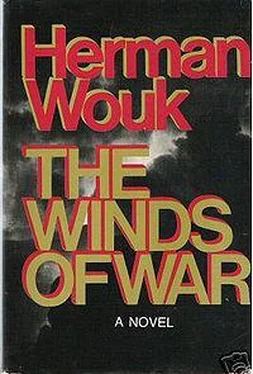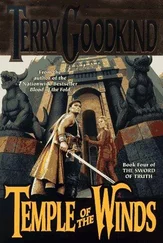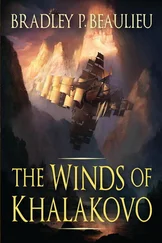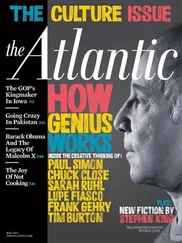Herman Wouk - The Winds of War
Здесь есть возможность читать онлайн «Herman Wouk - The Winds of War» весь текст электронной книги совершенно бесплатно (целиком полную версию без сокращений). В некоторых случаях можно слушать аудио, скачать через торрент в формате fb2 и присутствует краткое содержание. Год выпуска: 1971, Издательство: Collins, Жанр: Историческая проза, на английском языке. Описание произведения, (предисловие) а так же отзывы посетителей доступны на портале библиотеки ЛибКат.
- Название:The Winds of War
- Автор:
- Издательство:Collins
- Жанр:
- Год:1971
- ISBN:нет данных
- Рейтинг книги:4 / 5. Голосов: 1
-
Избранное:Добавить в избранное
- Отзывы:
-
Ваша оценка:
- 80
- 1
- 2
- 3
- 4
- 5
The Winds of War: краткое содержание, описание и аннотация
Предлагаем к чтению аннотацию, описание, краткое содержание или предисловие (зависит от того, что написал сам автор книги «The Winds of War»). Если вы не нашли необходимую информацию о книге — напишите в комментариях, мы постараемся отыскать её.
About the Author
Herman Wouk's acclaimed novels include the Pulitzer-Prize winning
;
;
;
;
;
; and
.
The Winds of War — читать онлайн бесплатно полную книгу (весь текст) целиком
Ниже представлен текст книги, разбитый по страницам. Система сохранения места последней прочитанной страницы, позволяет с удобством читать онлайн бесплатно книгу «The Winds of War», без необходимости каждый раз заново искать на чём Вы остановились. Поставьте закладку, и сможете в любой момент перейти на страницу, на которой закончили чтение.
Интервал:
Закладка:
“Hello there, Byron,” Tully called.
Byron turned around and tried to jump up, but it was hard to do on the heap of long cylinders. “Oh, good afternoon, sir.”
“How many did you get?”
“Twenty-six, sir. Then we had to leave. The fire was closing in.”
“I see you scooped up a truckload of spare parts, too.”
“That was Hansen’s idea, sir.”
“Who’s Hansen?”
Byron indicated the torpedoman, who had leaped to his feet on recognizing Captain Tully.
“What’s your rating?”
“Torpedoman first class, sir.”
“That’s where you’re wrong. You’re a chief torpedoman.”
Hansen’s beard opened in an ecstatic smile, and his eyes gleamed at Ensign Henry. Tully looked around at the trove of rescued torpedoes. “You got exploders?”
“Yes, sir.”
“Well, good. Suppose you drive this haul around to Mariveles.”
“Aye aye, sir.”
“I’ll want a report on this, Byron, with the names, and ratings of your working party and of these drivers.”
“Yes, sir.”
“Any chance of getting more fish out of there?”
“Depends on what the fire leaves, sir. The shop hadn’t caught when we left, but now — I don’t know.”
“All right. I’ll see about that. You get going.”
Next morning Byron presented himself to Captain Tully. The squadron commander was working at a desk in a Quonset hut on the beach at Mariveles Harbor, a deep cove in the mountainous Bataan peninsula. Behind Tully’s tanned hairless pate a large blue and yellow chart of Manila Bay covered most of the plasterboard wall. Byron handed him a two-page report: Tully glanced through it and said, “Pretty skimpy document.”
“It has the facts, Captain, and all the names and ratings.”
Tully nodded and dropped the sheets in a basket. “Branch told me you’re allergic to paperwork.”
“It’s not my strong point, sir. I’m sorry.”
“Now, did he tell you what I want you for?”
“Just something about salvage, sir.”
“Byron, the Japs are bound to land soon. We probably can’t hold Manila, but as long as MacArthur hangs on to Bataan, the squadron can go on operating out of Mariveles. This is a hell of a lot closer to Japan than any other sub base we’ve got now, or will have for a good long while.” Tully stood, and gestured at the wall. “So — the idea is to clean out Cavite, what’s left of it, and Manila, of every single item we can use, and fetch it here. You seem to have a sort of scavenger instinct. Tully laughed, and Byron responded with a polite smile. “You’ll work on this until the Devilfish goes out on operations. Lieutenant Commander Percifield is in charge, and you’ll report to him now over at Admiral Hart’s headquarters in Manila. He’s expecting you.”
“Aye aye, sir.”
“While you’re there, look in on Admiral Hart. He’s an old submariner, you know. I told him about those torpedoes. He appreciated it and is writing a letter of commendation.”
“Yes, Captain.”
“Oh, and incidentally, I’ve written your father about your exploit, though Lord knows when and how it’ll catch up with him.” Tully irresolutely took off his glasses, looked at the erect impassive ensign, and swivelled to and fro.
“Now, Byron, do you still want to go to the Atlantic? With all hell busting loose out here?”
“Yes, sir. I do want that.”
“You do? When there’s only our squadron now to oppose the Japs on the sea? When this is where the fighting is?”
Byron did not reply.
“As for your wife and baby in Italy, that’s unfortunate, but you know, she’ll be an enemy alien now.”
“Sir, we’re not at war with Italy. Not yet.”
“Oh, that’s inevitable. Hitler’s scheduled to make this big speech today, you know. Everybody expects him to declare war, and old Musso will just follow suit, p.d.q. Your wife will be interned, but that’s no cause for alarm. After a while she’ll be exchanged. The Italians are civilized people. I’m sure she’ll be all right.”
“Captain Tully, my wife’s Jewish.”
The squadron commander looked surprised, and turned a bit red. He avoided Byron’s eye. “Well now, that I didn’t know.”
“My captain knows. I’ve told him. The Italians — and what’s more to the point, the Germans — will class my baby son as Jewish, too.”
Blowing out a long audible breath, “Tully said, “Okay. That’s a problem. I still don’t see what you can do about it. Our submarine operations in the Atlantic will be minor for a long, long time. Here’s where we need you.” He looked up at the ensign, who stood at attention, blank-faced. “However, Byron, I’m going to send a dispatch, recommending your transfer to Submarine Force Atlantic — as and when the Devilfish gets a replacement for you. Not before.”
Byron Henry showed no sign of the relief that filled him.
“Thank you, Captain Tully.”
The squadron commander opened a desk drawer. “One more thing. Your commanding officer concurs in this, so congratulations.”
He laid on the desk before Byron a gold pin, the dolphins of a submariner.
Chapter 62 — War with the United States
(from WORLD EMPIRE LOST)
Hitler’s Blowup
On December 11, the final calamity occurred. Adolf Hitler — after pausing for four days in which History herself must have held her breath — summoned the Reichstag and declared war upon the United States.
Franklin Roosevelt, in his war speech to Congress on December 8, had not so much as mentioned Germany. And with good reason! The surge of war spirit in his country was directed one hundred percent against “infamous” Japan. As usual, the wily President did not stick his neck out one inch beyond the stretch of public opinion.
For four anxious days it appeared to some of our staff that the Pearl Harbor attack might prove the great break of the war for us. Conceivably America might turn its back entirely on Europe to cope with Japan; the hysterical war pressure built up by Roosevelt would all bent itself into the Pacific Ocean, drying up Lend-Lease; and we would at last have the breathing space in which to strangle England and knock out the Soviet Union, after which we could deal with the USA in our own time and fashion.
However, the Führer was under violent Japanese pressure to “honor” the so-called Tripartite Pact.
A Pact Becomes a Trap
This pact was mainly a propaganda sham, like the Pact of Steel between Germany and Italy. Japan joined the Pact of Steel in 1940, and so it become the Tripartite Pact, and the chimera of the worldwide “Axis” was born. It was a hollow bluff. Italy of course was a zero. Japan wanted to threaten the Americans with Germany, and Hitler wanted to threaten them with Japan. By uniting in a pact, the two poor nations hoped to paralyze into inactivity the rich nation that lay between them.
But the earth is round, and another powerful nation lay between them in the other direction — the Soviet Union. This was a different matter! Germany and Russia were linked by Ribbentrop’s nonaggression pact. Therefore our diplomats had written a clause into the Tripartite Pact, saying that relations with the Soviet Union would not be affected by the new treaty.
When we began operations against Russia, the Japanese found this clause of ours a very lucky escape hatch. They politely cited it and the neutrality pact they had meantime signed with Russia, and declined to march. They might do so later when conditions permitted, they said — meaning, when Germany had done all the fighting and bleeding, and the winnings were about to be raked in. But with Pearl Harbor, global conditions suddenly reversed; and now Japan demanded that Germany come to her aid against America, though she had failed Germany against Russia!
Читать дальшеИнтервал:
Закладка:
Похожие книги на «The Winds of War»
Представляем Вашему вниманию похожие книги на «The Winds of War» списком для выбора. Мы отобрали схожую по названию и смыслу литературу в надежде предоставить читателям больше вариантов отыскать новые, интересные, ещё непрочитанные произведения.
Обсуждение, отзывы о книге «The Winds of War» и просто собственные мнения читателей. Оставьте ваши комментарии, напишите, что Вы думаете о произведении, его смысле или главных героях. Укажите что конкретно понравилось, а что нет, и почему Вы так считаете.












